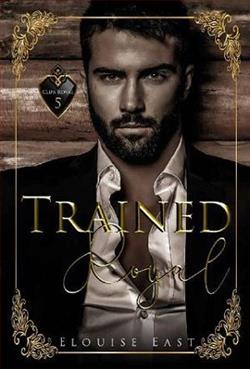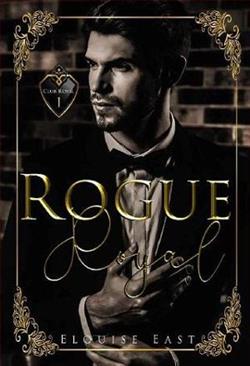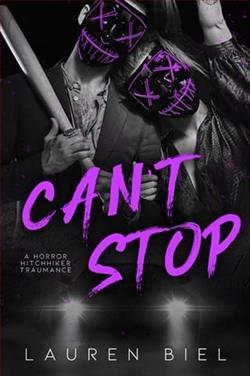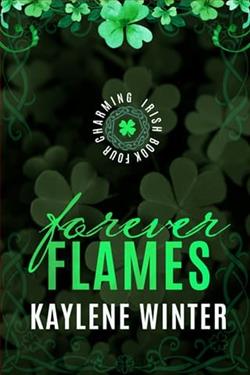Page 1 of Dalliances & Devotion (The Truitts 2)
Chapter One
Outside Indianapolis, Indiana
Summer, 1871
Vapid, vacuous, verbose—a waste of ink.
Amalia Truitt threw her valise against the seat next to her as the words repeated in her brain. She kicked her legs up onto the brocade footrest she’d requested for her private train car. The complaint to her editor about her latest column shouldn’t ruin her journey home, but worry wouldn’t leave her be. Neither would her looming deadline nor the fear that the criticisms had merit.
Explaining how to dress, how to wear your hair, and how to polish yourself until your sheen was so bright it hid all your other flaws was her...what did her mother say? Her forte. The one thing she was good at.
Was she losing her touch?
No. She couldn’t be. She needed the money too much for that to happen.
Well, to be fair, she required more money than her beauty column for the Philadelphia Inquirer could provide. A lot more. Which is why she couldn’t be in a tizzy when she reached Centerville and asked her parents for it. Then they’d never listen, never take her seriously. She had to be at her most calm and rational.
With a moan, she leaned back farther, rubbing against the magenta velvet, reveling in the soothing vibrations from the rumbling wheels below. Probably ruining her fresh ringlets.
But no one was going to see her hair today. She tossed her hat on the floor and closed her eyes. She’d order her favorite meal—with brandy, to quiet all the voices in her head.
Please, Amalia, no more trouble, no more legal fees, no more waste. You’re an adult. Please act like one.
Amalia balled her fist at the memory. Her father, the once jovial parent, delivered the admonition after her last divorce. No condolences, no sympathy, not even a smidge of unsolicited advice—only resigned disappointment. And certainly no inquiry as to why she might have married again in the first place. Just an assumption that she’d been impulsive and empty-headed a second time. That she’d learned nothing.
Twenty-four, two months away from twenty-five years old, and all they saw was two-time failure. Her parents probably wanted her to become a nun. Or at least find a Jewish version of a convent. As if she’d wear anything black and shapeless. She straightened the two-tone sapphire brooch at her collar.
Conquering hero—that was who she was. She’d show them all the competent woman she’d become, demand her due: access to the family fortune like her siblings. And her parents would acquiesce. Her purpose, the charitable trust she’d worked so hard to create and keep solvent these last few years wouldn’t die.
They’d not refuse her. She’d approach them right after the bris for her new nephew. They’d be in a good mood and say “yes.” No need to worry.
Amalia’s stomach rumbled. With hunger, not fear. She really should call the porter.
Before she could fully rise, a rapping rattled the entry.
Still rubbing her aching neck, she swept aside the sliding door and gaped as a familiar form pushed inside the car. Her car. Amalia swayed on her feet and had to clutch at the wall to keep upright.
Even after six years, she’d recognize her brothers’ friend from V Corps anywhere. Though his bearing was somehow more American, David Zisskind’s flashing coal eyes and tousled ebony hair hadn’t changed a lick. All the memories roared back—every kiss, every touch—but most vividly her father’s admonition when he caught her sneaking back to her room after a midnight rendezvous.
I’m not an idiot. I know where you were and who you were with. Not smart, Amalia. We know nothing about him and you’re too young. Behave. Your mother has enough to worry about.
Not to mention all the mistakes she’d made afterwards. A drumming started in her brain, so loud she almost threw her hands over her ears.
“What are you doing here?” She managed the question as she blinked, her mind working to reconcile the man before her with the teenage boy he’d been. The heel of her over-polished white boots caught on the runner near the door. Amalia scrambled for purchase, but to no avail. Her legs slid from under her.
In a flash, David’s arms shot out and grabbed her elbows. Warmth zinged down her spine as her back hit his rather solid chest. “Protecting you. From yourself, apparently, as well as outside threats.” The words vibrated into her body from his.
“Outside threats?” With a jolt, Amalia rocked away from David. “Has something happened? Is my mother all right?” A million fears sparked. Though both her parents used their combined fortune to champion causes, her Jewish banking heiress mother bore the b
runt of the public consternation. Before the war, the anti-abolitionists threatened to tar and feather her if she ventured south of New Castle County and after, in Europe, well, over there the caricatures were a million times worse than in America.
“Your parents are fine. This is about you, not them.” Though he hadn’t completely lost his accent, David’s voice was louder and his manner much steadier than the last time they’d spoken. The knot in her chest loosened, but she still couldn’t quite find her voice.
“Were you expecting someone?” He brushed past her and peered around the room, searching. He narrowed his eyes behind his spectacles.
“No. Well, maybe? I mean, I’m a frequent enough traveler that the staff anticipates my needs. I was hungry, so I thought perhaps someone was already bringing me something to eat.” She squeaked the words before winding a still bouncing ringlet around her fingers. Why hadn’t he answered the “threats” question?
“You should check before you answer the door.” David lifted her bag and opened it, poking his fingers about.
She marched over and snatched the case back. “I have my own car and select staff. They don’t permit just anyone back here.” She clutched the leather to her chest as tight as she could. He’d have to pry it from her now. “And you’ve still explained nothing. You cannot poke through my private necessaries with only a vague reference to ‘threats.’”
“Why don’t we settle down and talk about this rationally.” David stepped forward, his legs shoulder-length apart, his hands on either side of his belt buckle. A mistake. If he used the word “hysterical,” she’d sock him, or better, knee him.
He held up his palm and his lips softened into an almost sheepish expression. “Sorry, that was a bit...” He ran a hand through his thick, slightly overgrown hair. “Let’s just do this without hostility. We’re hardly strangers. We were once friends, used to enjoy each other’s company. I actually credit you a little for my improved English.”
“Do you?” She whipped around as the ghosts of the past swirled—all the lost innocence, the war that changed them, and the stolen kisses meant to stave off the sadness. Her rib cage strained against her corset.
Friends?
Ha. Her friendships didn’t come with physical benefits. What they’d engaged in was a temporary liaison based on mutual need for release. He’d made that quite clear once upon a time.
Amalia flipped her hair over her shoulder. “Our indecorous dalliance was years ago. We’re strangers, in many ways, and this is my train car, so I think I’m entitled to some answers before you...do whatever you’re doing. You owe me the full story, including how in the world you managed to get back here.”
A shadow cast over David’s features. He raised a finger, but dropped it and muttered a few unintelligible, angry words before glancing back, his face once again neutral.
“I told the line the truth. The Pinkerton Agency’s name carries weight.” He pushed his spectacles up the bridge of his nose with an arrogant quirk of his lips. “Your brother dismissed the staff and instead hired my team to protect you. Thad would’ve come himself, but he’s occupied with the new baby.”















